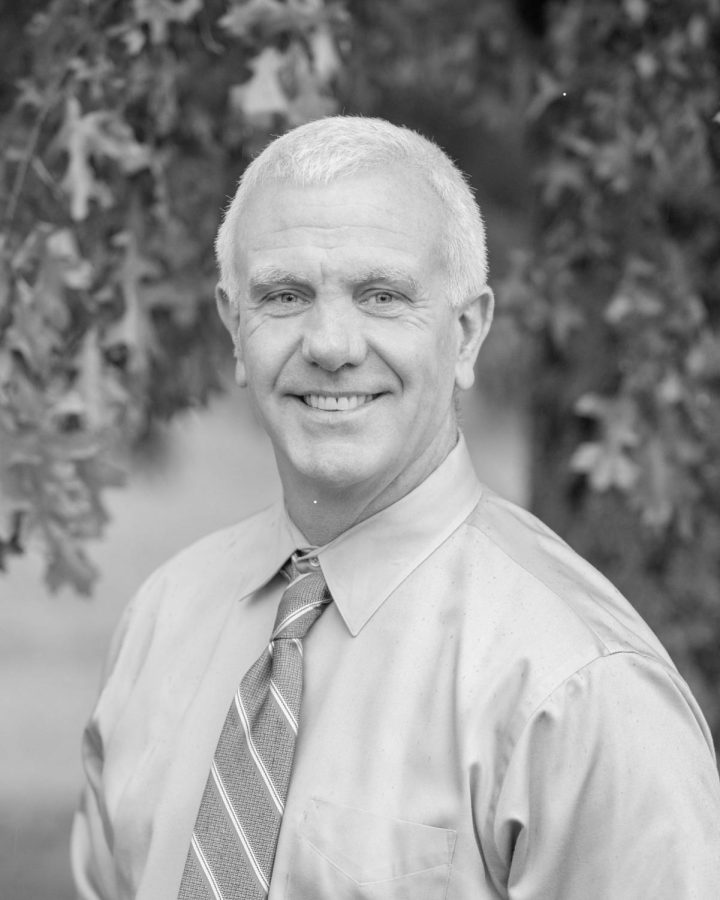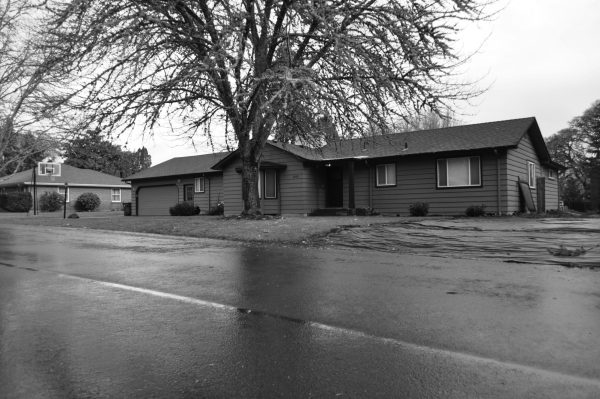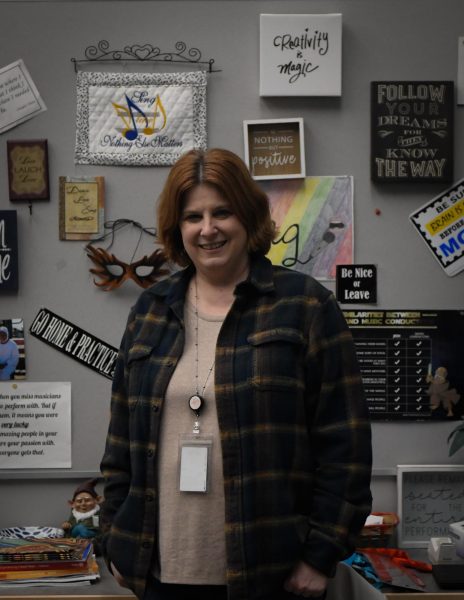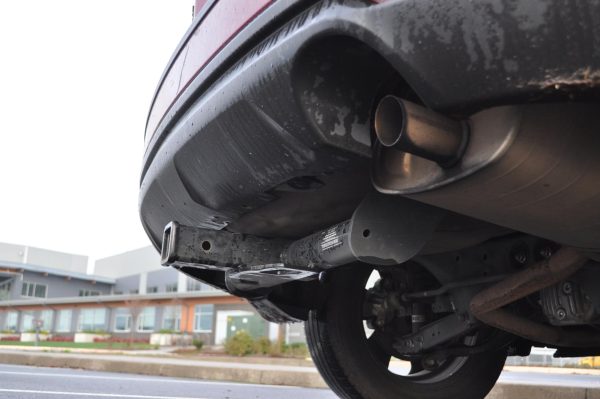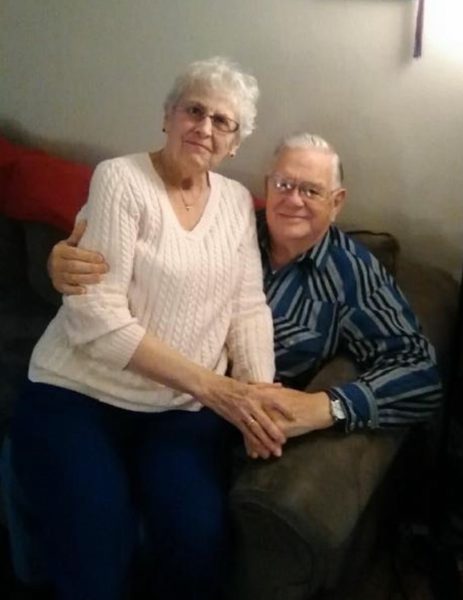New Superintendent Hired
Andy Gardner shares his vision for the future of the district
On Feb. 3, the Greater Albany Public Schools school board convened for a roughly 13-minute special board meeting in which they announced and voted unanimously to make Andy Gardner the next superintendent of the district. This isn’t Gardner’s first time beinga superintendent; he’s currently the superintendent of North Santiam School District and has held this position since 2010, according to information shared by GAPS. Gardner will become superintendent of the district on July 1, as interim superintendent Rob Saxton’s contract ends at the end of June.
Q&A
How do you view the voice of the community?
I think the different voices are going to be coming from different perspectives. It’s a complex organization, but yet there’s some very simple things that run through our entire organization. Safety of students, students learning to their ability level, exiting with work or college skills. So there’s some things that whatever people’s viewpoints are, they can still agree on those central core outcomes. From wherever you approach, whether you’re from the Chamber [of Commerce], whether you’re a parent, whatever, so it’s going to be about fine tuning that. So I see different organizations or viewpoints. It’s just looking at a different side of that same picture.
How will the voices of the community, including students, factor into your decisions as superintendent?
So there’s two student reps on the board. One of the things we have done here, there was one year we missed, but just listening to students at the end of the year, like seniors, about their experience so that we can take their impressions of the district. So listening to kids, I think sometimes you have to really scope what that looks like. But we have two student reps on the board that we would hear from regularly. Of course, being in the schools like we are here we get to know the kids really well, so they’re a little more comfortable talking to us. We’re a smaller district. So I think we’re going to have to be a little more explicit and organize some things where we are listening to kids about their experiences, all kids, but also diversity groups, things like that.
How do you plan to help marginalized communities in this district?
Well I think there’s already been some good work that’s been done. I think we’re going to have to regularly meet with people to hear from them — how our systems inadvertently marginalize them, make it harder for them. I think we have to be really intolerant of racial epithets, and some of the things that have increased recently. I think that’s really important. I know that [interim superintendent Rob] Saxton is working on developing a strategic plan for some outcomes, among which is to increase the number of diverse staff members in the district. And so as that is developed, of course, that’ll be my responsibility to implement that.
How will you deal with criticism from the community?
I think there’s always something good in criticism. I don’t tend to take it personally very much. I feel like it’s always an opportunity to learn most of the time. With the critics that I have in my current job and in my past jobs, almost always there’s something to learn from a criticism. There might be some truth there that you can kind of soak in and go, ‘Okay, I can do that differently.’ The key is to not be defensive because that keeps you from hearing it and responding to it. A lot of times we’re just really dismissive of criticism. There’s generally something in there that you can learn.
How do you hope to establish yourself and trust in the GAPS community?
Well, I think trust is about consistency and certainty. So you know, for example, a consistency in the messages is going to be important. So I am well served to speak from what I believe, as often as I can. I do not wish to change my message when I go from one group to another, because that will then create a loss of credibility for me. And so a consistency of message. And then I think the other one is to stay there for a time, so that people can hear that message once or twice. See actions and decisions that I make, see that they are reflected in what I’ve said, and build trust that they begin to know who I am over time because of what I say and what I do.
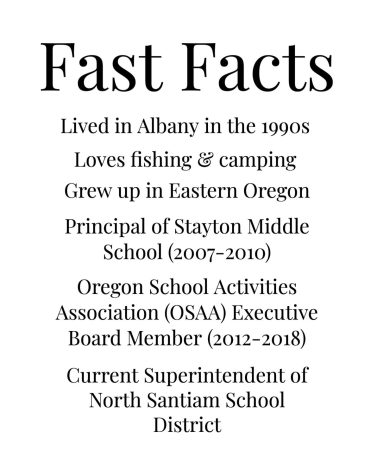
What will be your number one priority as you serve as superintendent? What are your guiding principles?
You don’t have much context when you first come into a job. So decisions, you don’t know who the people are, you don’t know all of the details and complexities around a decision. So I imagine that I’ve got a lot of learning to do and a lot of listening to do as I start.
What are the biggest things you have to tackle when you start?
I think just gaining clarity and work culture for adults is going to be really important, that everybody begins to move towards getting on the same page. And in a big district, that takes a little more time, it’s a little more challenging. And then I think listening to the community and figuring out what a process is going to be to listen to the various aspects of the community. Different population groups, groups with diversity, groups who focus towards the secondary schools. People who spoke who focused towards the Chamber of Commerce in the business community. Beginning to set up relationships and listen[ing] to them, I think it’s going to be really important.
How did the time through COVID exemplify your leadership?
Well, Theodore Roosevelt, the US president, used to say, ‘Do what you can, with what you have, where you are.’ And so one of the things that the COVID challenges resulted in is you have to recalibrate your expectations and your goals. So this year, our number one goal was to be in school the whole year, in-person, so we didn’t have a lot of facility goals or instructional program goals. We had a goal just to go to school. It forced us to become very focused on our goals, very short term in our goals. And now as hopefully we come out of this, we’ll be able to return to that. I think Albany is probably in the same place,. so it’s a good time for a new leader to be able to start new things.
Your donation will support the student journalists of West Albany High School. Your contribution will allow us to purchase equipment and cover our annual website hosting costs.
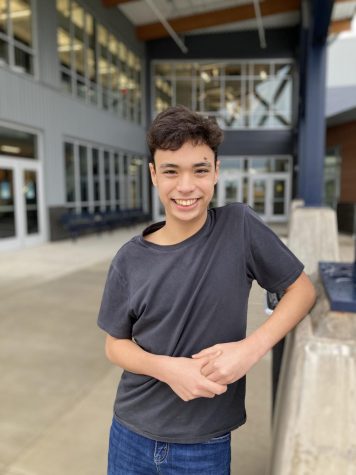
Ming is a fourth-year staff member and current editor-in-chief. To him, journalism is a way to use his inner curiosity in a way that impacts the student...


